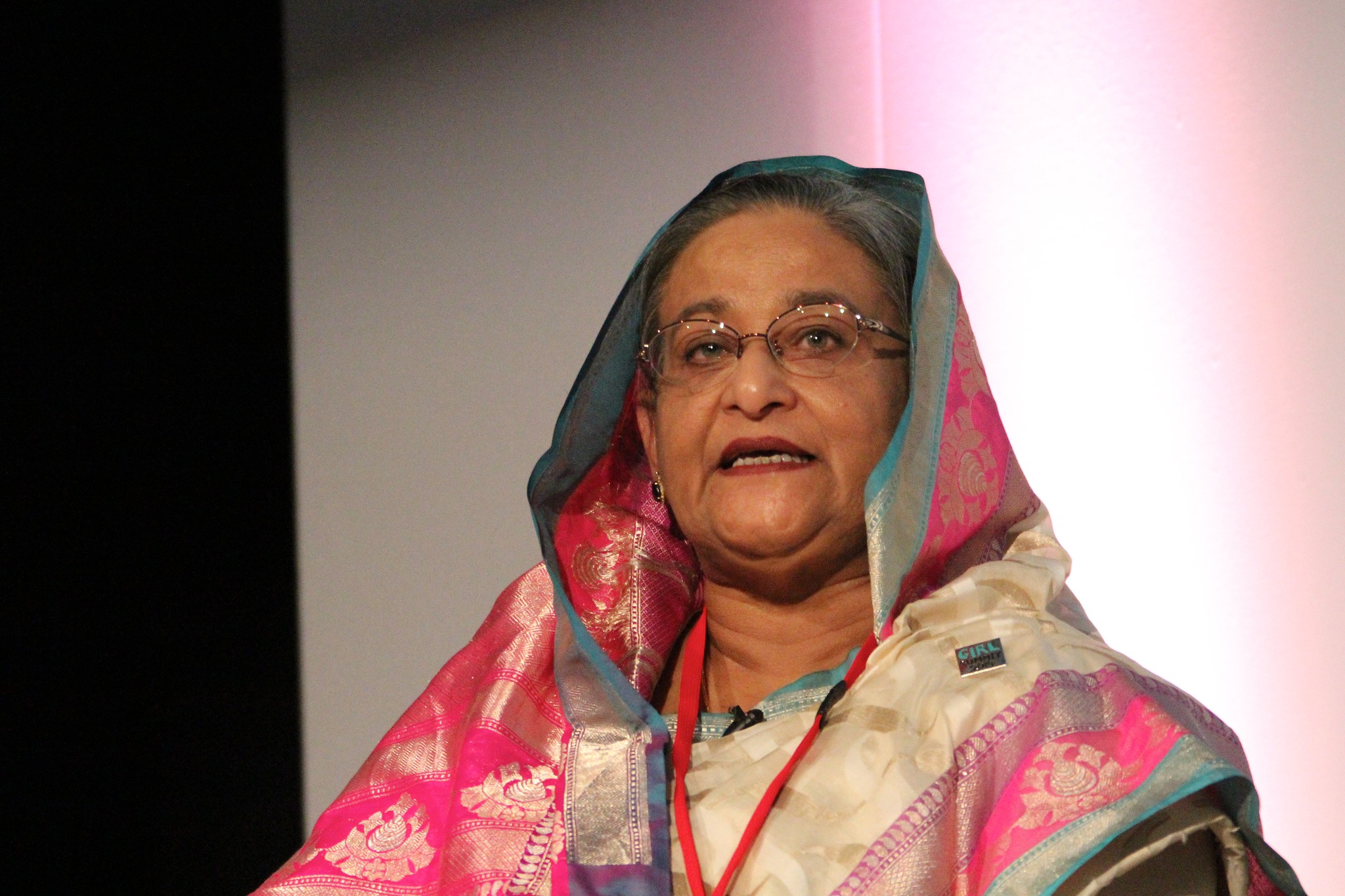Sheikh Hasina, once celebrated as a democratic icon in Bangladesh, transformed the country into an authoritarian state during her fifteen-year tenure as Prime Minster from January 2009 to August 2024. On 5 August 2024, nationwide student-led quota reform protests ousted her from power, resulting in her being exiled to India. However, the way in which she consolidated power over the last fifteen years continues to have far-reaching implications for the future of Bangladeshi politics.
Hasina has a strong political lineage as the daughter of Sheikh Mujibur Rahman, the father of the Bangladeshi nation and a pivotal figure in the country’s 1971 Liberation War against Pakistan. She only came into the national political limelight, however, following the assassination of most of her family members, including Rahman, in a 1975 military couporchestrated by some disgruntled military officers. From 1975 to 1990 Bangladesh was under military rule, but a mass uprising in 1990 ushered in a democratic era in which Hasina and her secular Awami League (AL), along with their prime rival, the centre-right Bangladesh Nationalist Party (BNP), played prominent roles.
The BNP, with its Islamic alliances, came to power in the 1991 election. It subsequently lost popularity because of its poor governance and its initial refusal to transfer power to a caretaker government responsible for arranging scheduled elections. The AL won the 1996 election, making Hasina Bangladesh’s Prime Minister for the first time. Her second term began in 2008 following her party’s landslide electoral win which was driven largely by the AL’s leading role in reinstating democracy after the military-dominated interim government era of 2007-2008 and by its development agendas.
This resounding victory marked the beginning of her shift from championing democracy to consolidating an authoritarian rule that lasted for the next fifteen years. Thus, Bangladesh’s political landscape has long been marked by political instability and immature democratic institutions which have made it susceptible to democratic backsliding: the gradual erosion of the democratic functioning of a country by a duly elected government.
Political scientists Stephan Haggard and Robert Kaufman argue that the first step towards democratic backsliding is the use of deliberate political polarisation. Upon assuming power in 2008 with a commanding parliamentary majority, Hasina skilfully deepened divisions rooted in the unresolved conflict between pro-liberation and anti-liberation forces from the country’s 1971 war against Pakistan.
Hasina’s AL capitalised on its instrumental role in that war. Her government established tribunals to prosecute 1971 war criminals (Pakistani collaborators), primarily targeting leaders of the major opposition parties, such as the BNP and the Bangladesh Jamaat-e-Islami. While these parties harboured several figures who directly opposed the Liberation War, her regime strategically targeted them to weaken their political power in pursuit of authoritarian consolidation. To garner public support and legitimacy, the AL government meticulously orchestrated the ‘Shabagh protests’ that mobilised a huge number of youths demanding the execution of these war criminals.
These protests helped forge national unity while exposing the AL’s hidden agenda to target political opponents. The AL promoted its pivotal role as a pro-liberation force of the 1971 Liberation War and portrayed its rivals, such as the BNP and Jamaat, as enemies of that cause. This strategy created the narrative that anyone challenging the AL opposes the Liberation War and the national spirit of the country.
This use of polarising rhetoric to justify repression became a hallmark of her regime. For instance, when student protests erupted in July 2024 demanding reforms to the government job quota reserved for 1971 freedom fighters’ family members, she blatantly labelled the student protesters as Rajakar (Pakistani collaborators during Bangladesh’s Liberation War in 1971). These very protests brought about her downfall.
She struck another blow to democracy by abolishing the caretaker government system through enacting the Fifteenth Constitutional Amendment in 2011. By eliminating the caretaker government, a neutral authority responsible for ensuring free and fair elections, the AL signalled its intent to control the electoral process. This paved the way for the AL’s electoral wins in 2014, 2018, and 2024, during which its largest political opposition, the BNP, boycotted the elections.
Further, in 2014, the Hasina government passed the Sixteenth Amendment to the Constitution, granting the Parliament the authority to remove Supreme Court judges. This garnered huge criticism both inside the country and abroad, causing her government to eventually reject the amendment. This abuse of legislation continued with the Digital Security Act passed by her government in 2018. It targeted dissident voices under the pretence of securing minority rights and countering terrorism. The Act provoked massive criticism both in Bangladesh and abroad. Hasina dealt with the problem by revoking, repackaging, and implementing what was effectively the same package of repressive measures in the newly titled Cyber Security Act of 2023. Through these targeted attacks on opponents, the marginalisation of dissidents, and the systemic erosion of institutional checks and electoral integrity, Hasina consolidated her authoritarian reign.
With Hasina’s exile in India, the interim government faces a daunting task of navigating a fragile political system and of dealing with her remaining supporters and sympathisers entrenched in all state institutions. Without effective reforms by the interim government, which have yet to materialise, Hasina’s fifteen-year long legacy of democratic erosion will likely deepen.
Image Credit: Russell Watkins/Department for International Development.

